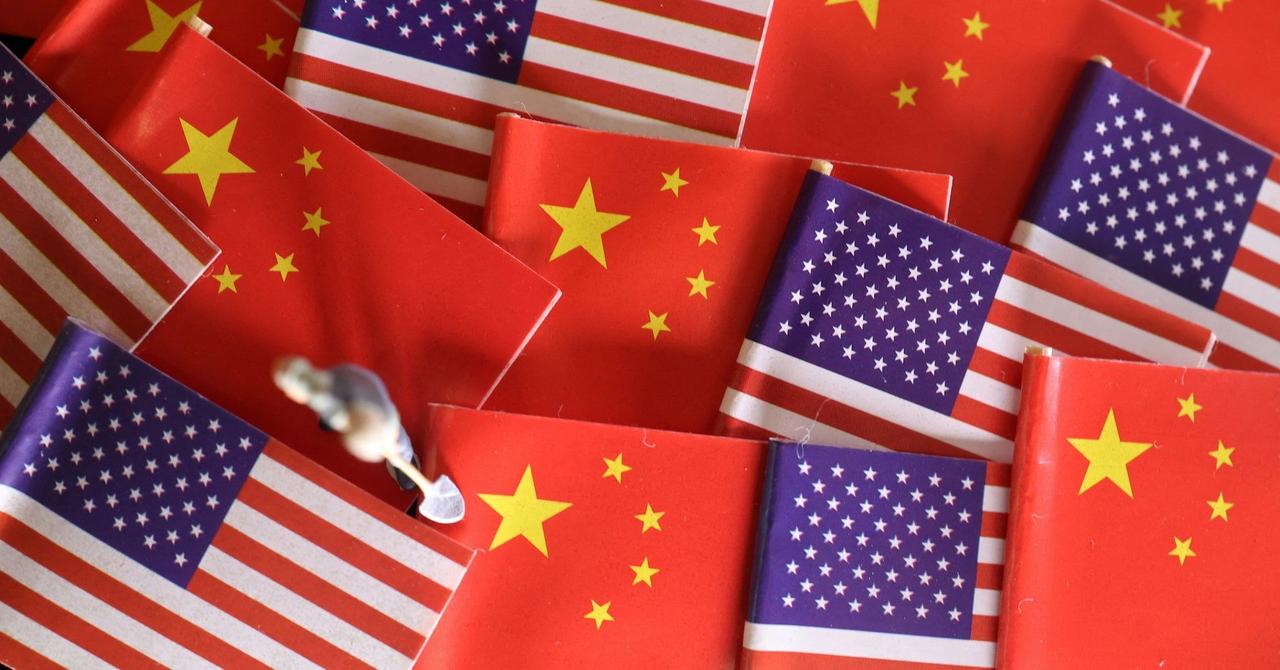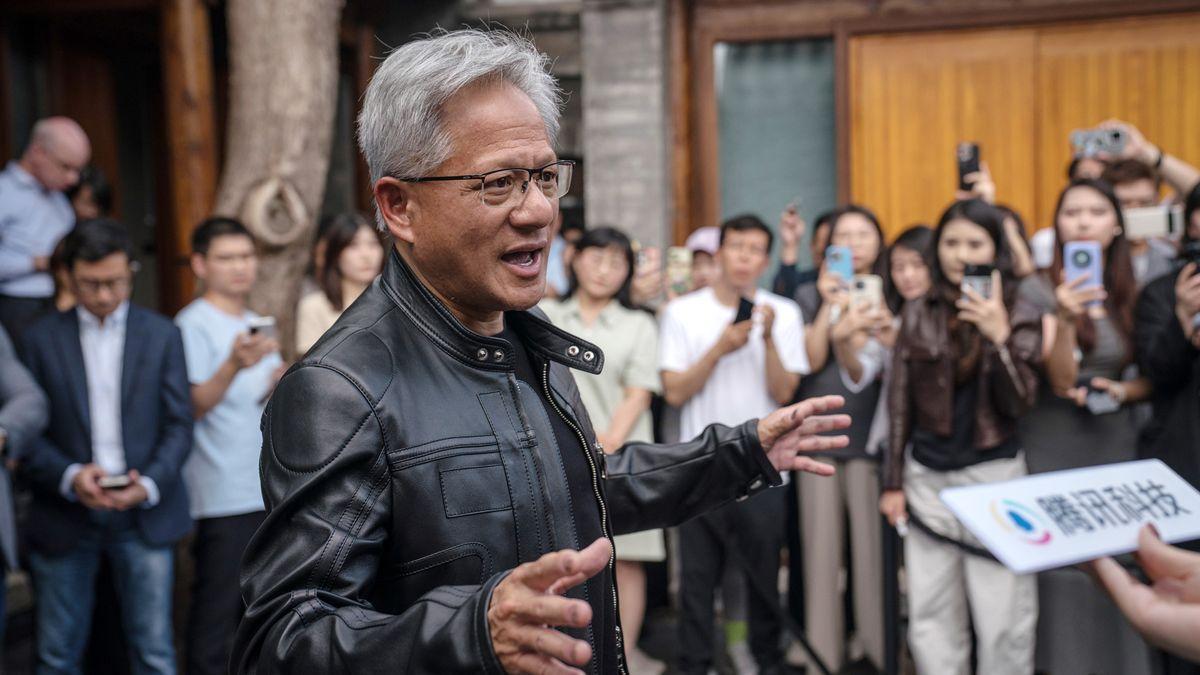China Seeks US Relaxation on AI Chip Export Controls in Trade Deal Negotiations
2 Sources
2 Sources
[1]
China wants US to relax AI chip-export controls for trade deal, FT reports
Aug 10 (Reuters) - China wants the United States to ease export controls on chips critical for artificial intelligence as part of a trade deal before a possible summit between Presidents Donald Trump and Xi Jinping, the Financial Times reported on Sunday. Chinese officials have told experts in Washington that Beijing wants the Trump administration to relax export restrictions on high-bandwidth memory chips, the newspaper reported, citing unnamed people familiar with the matter. The White House, State Department and China's foreign ministry did not immediately respond to requests for comment on the report. HBM chips, which help perform data-intensive AI tasks quickly, are closely watched by investors due to their use alongside AI graphic processors, particularly Nvidia's (NVDA.O), opens new tab. The FT said China is concerned because the U.S. HBM controls hamper the ability of Chinese companies such as Huawei to develop their own AI chips. Successive U.S. administrations have curbed exports of advanced chips to China, looking to stymie Beijing's AI and defence development. While this has impacted U.S. firms' ability to fully address booming demand from China, one of the world's largest semiconductor markets, it still remains an important revenue driver for American chipmakers. Reporting by Chandni Shah in Bengaluru; Editing by William Mallard Our Standards: The Thomson Reuters Trust Principles., opens new tab
[2]
China wants US to relax AI chip-export controls for trade deal, FT reports
A SK Hynix Inc. 12-layer HBM3E memory chip displayed at the Semiconductor Exhibition in Seoul, South Korea. China wants the United States to ease export controls on chips critical for artificial intelligence as part of a trade deal before a possible summit between Presidents Donald Trump and Xi Jinping, the Financial Times reported on Sunday. Chinese officials have told experts in Washington that Beijing wants the Trump administration to relax export restrictions on high-bandwidth memory chips, the newspaper reported, citing unnamed people familiar with the matter. The White House, State Department and China's foreign ministry did not immediately respond to requests for comment on the report. HBM chips, which help perform data-intensive AI tasks quickly, are closely watched by investors due to their use alongside AI graphic processors, particularly Nvidia's. The FT said China is concerned because the U.S. HBM controls hamper the ability of Chinese companies such as Huawei to develop their own AI chips. Successive U.S. administrations have curbed exports of advanced chips to China, looking to stymie Beijing's AI and defence development. While this has impacted U.S. firms' ability to fully address booming demand from China, one of the world's largest semiconductor markets, it still remains an important revenue driver for American chipmakers.
Share
Share
Copy Link
China is pushing for the US to ease restrictions on AI chip exports, particularly high-bandwidth memory chips, as part of trade negotiations ahead of a potential summit between Presidents Xi and Trump.
China's Push for AI Chip Export Relaxation
In a significant development in US-China trade relations, China is reportedly seeking a relaxation of US export controls on artificial intelligence (AI) chips as part of ongoing trade negotiations. This request comes ahead of a potential summit between Chinese President Xi Jinping and US President Donald Trump, highlighting the critical importance of AI technology in international trade and diplomacy
1
2
.
Source: Reuters
Focus on High-Bandwidth Memory Chips
At the center of China's request are high-bandwidth memory (HBM) chips, which are crucial components for performing data-intensive AI tasks efficiently. These chips are particularly important when used in conjunction with AI graphic processors, such as those produced by Nvidia
1
. Chinese officials have reportedly communicated to experts in Washington their desire for the Trump administration to ease export restrictions on these high-performance chips2
.
Source: CNBC
Impact on Chinese Tech Companies
The current US export controls on HBM chips are a significant concern for China, as they hinder the ability of Chinese companies, notably Huawei, to develop their own AI chips
1
. This limitation poses a substantial challenge to China's ambitions in the AI sector and its broader technological development goals.US Strategy and Market Implications
Successive US administrations have implemented and maintained export restrictions on advanced chips to China, aiming to impede Beijing's progress in AI and defense technologies
1
2
. While these controls have affected US firms' capacity to fully capitalize on the booming demand from China's semiconductor market, the Chinese market remains a crucial revenue source for American chipmakers1
.Global Semiconductor Market Dynamics
The ongoing negotiations and potential changes in export policies could have far-reaching implications for the global semiconductor industry. China represents one of the world's largest semiconductor markets, and any shift in trade policies could significantly impact market dynamics and the competitive landscape of the AI chip sector
2
.Related Stories
Diplomatic Silence and Next Steps
As of now, neither the White House, the US State Department, nor China's foreign ministry have provided official comments on these reports
1
2
. The outcome of these negotiations and any potential changes to export controls will likely be closely watched by industry stakeholders, policymakers, and investors worldwide.Broader Context of US-China Trade Relations
This development is part of the broader, complex landscape of US-China trade relations. The focus on AI chip exports underscores the growing importance of advanced technologies in international trade negotiations and geopolitical strategies. As both nations vie for technological supremacy, the semiconductor industry has become a key battleground in their economic and strategic competition.
References
Summarized by
Navi
Related Stories
Trump Administration Pauses Tech Export Controls to China, Sparking AI Security Concerns
28 Jul 2025•Policy and Regulation

US Imposes New Export Controls on China's Semiconductor Industry
28 Nov 2024•Policy and Regulation

U.S. Imposes 15% Revenue Share on Nvidia and AMD's AI Chip Sales to China Amid Escalating Tech Rivalry
05 Aug 2025•Policy and Regulation

Recent Highlights
1
ByteDance's Seedance 2.0 AI video generator triggers copyright infringement battle with Hollywood
Policy and Regulation

2
Demis Hassabis predicts AGI in 5-8 years, sees new golden era transforming medicine and science
Technology

3
Nvidia and Meta forge massive chip deal as computing power demands reshape AI infrastructure
Technology





